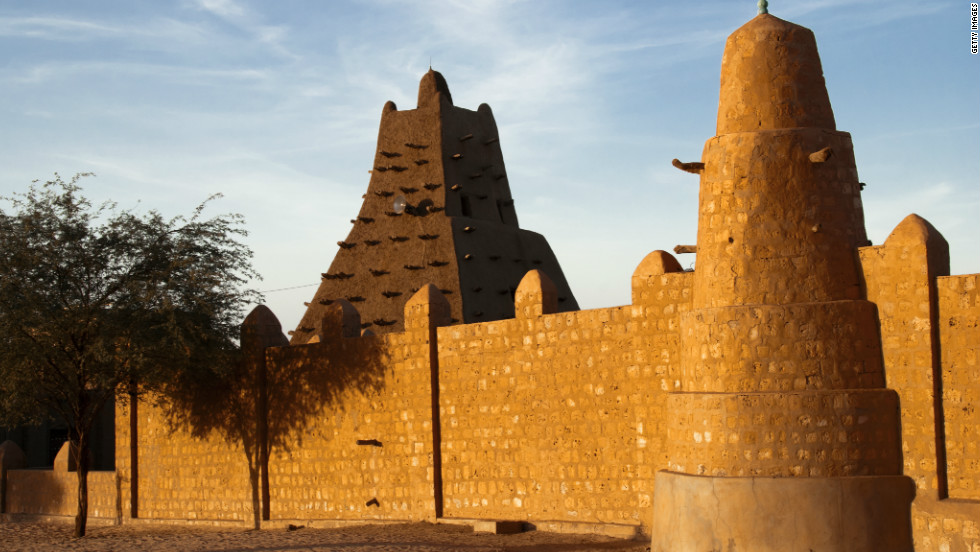Story highlights
- Islamist militants regard such shrines as idolatrous and thus prohibited
- The landmark sites are at the heart of Timbuktu's culture and are featured in postcards
- The attacks are the latest targeting historic landmarks in northern Mali
- In May, elderly men kept watch over other sites after militants burned another tomb
The United States is condemning the destruction of two more tombs in northern Mali as international outrage grows over Islamist militants' attacks on historic and religious landmarks in the nation.
Islamists ordered residents to leave the area and started razing the tombs in Timbuktu this week, witnesses said.
"They were shooting in the air to warn people of going near and entering the area," local resident Allimam Oumar said of the Tuesday attacks. "The militants think the shrines are idolatrous."
The tombs -- a common feature on Timbuktu postcards -- are the latest in attacks on landmarks listed as U.N. World Heritage sites.
Islamic militants have gone on a rampage for months, destroying sacred tombs in the city and vowing to target more. In May, elderly men kept watch over the main library after Islamists burned a different tomb in another attack in Timbuktu.
"We are outraged by the continued destruction of these World Heritage sites and the ongoing intimidation of local populations," said Victoria Nuland, a spokeswoman for the U.S. State Department . "We ... call for all parties to protect this invaluable cultural heritage for future generations. This is an assault not just on Mali but on the heritage of all Africans."
Chaos have rocked Mali since a military ruler overthrew the democratically-elected president in March, shaking one of West Africa's most stable democracies.
The coup leader stepped down in May and transferred power to a civilian transitional government, but uncertainty looms.
Ethnic Tuareg rebels and other Islamist militants have taken advantage of the uncertainty to seize control of the northern portion of the country, including Timbuktu.
Ansar Dine, an al Qaeda-linked group claiming control of the city, is blamed for the attacks on historical landmarks.
The picturesque city of Timbuktu is considered an important destination for Islamic scholars, and features ancient and prominent burial sites.
Islamist militants regard such shrines as idolatrous and thus prohibited in their religion. They especially target Sufi shrines, which they believe are sacrilegious. Sufism is a mystical dimension of Islam considered offbeat and frowned upon by Islamic hardliners. The Sufis, who brought Islam to much of sub-Saharan Africa, dance, pray and preach using drama and humor.
In a similar attack in 2001, the Taliban destroyed ancient Buddhist relics in Afghanistan.
Experts say the mud and wooden structures dating to the 15th century are at the heart of Timbuktu's culture.
"Timbuktu is no ordinary town. The fabled "City of 333 Saints" is an ancient desert crossroads and a historic seat of Islamic learning and faith," said Irina Bokova, who heads the U.N. cultural body, UNESCO.
Attacks on such landmarks translates to the loss of history and the values associated with such sites, according to Bokova.
"It is an attack against the physical evidence that peace and dialogue is possible. This is condemned uniformly by religious leaders across the world," she said.
Last week, the United Nations called for sanctions against the Islamist fighters and warned it is considering a proposal by West Africa states to deploy troops in the troubled country.
It also urged U.N. member states to submit names of those with ties to al Qaeda in northern Mali.
West African leaders proposed plans to deploy troops from member states to Mali, but the Security Council said it needs more details before it can make a decision on the request.
The transitional government has said it is working toward restoring stability in the north.

















